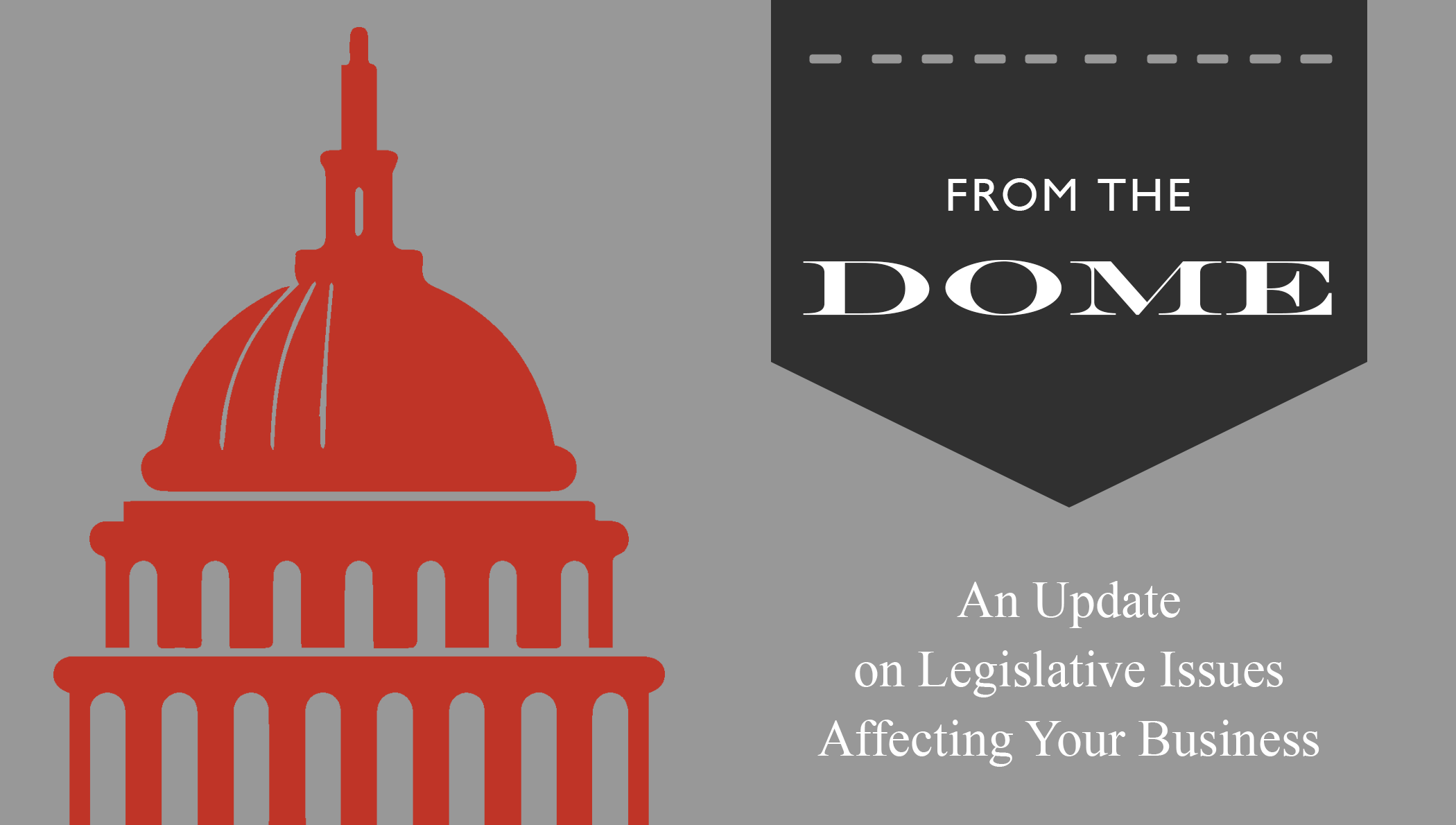 The Minnesota Legislature ended on a less-than-graceful note as major bills were negotiated and considered just moments before the constitutionally mandated adjournment time of midnight on May 22. The legislature adopted a tax bill and supplemental budget bill that are awaiting signature by Governor Dayton, but a last-minute amendment derailed a bonding/transportation bill. As a result, a potential special session is in the works to complete action on that outstanding bill. Below you’ll find a rundown on where key issues that will impact businesses and the Greater Mankato region stand following the legislative session.
The Minnesota Legislature ended on a less-than-graceful note as major bills were negotiated and considered just moments before the constitutionally mandated adjournment time of midnight on May 22. The legislature adopted a tax bill and supplemental budget bill that are awaiting signature by Governor Dayton, but a last-minute amendment derailed a bonding/transportation bill. As a result, a potential special session is in the works to complete action on that outstanding bill. Below you’ll find a rundown on where key issues that will impact businesses and the Greater Mankato region stand following the legislative session.
To get the full report on the Legislative session, be sure to attend our 2016 Legislative Session Recap Breakfast Forum with our local legislators on June 1. You can get more information and register here.
Taxes
The Legislature approved a $259 million tax reduction bill (H.F.848).
Notable provisions in the bill include:
- A reduction in the commercial/industrial property taxes paid to the state by exempting the first $100,000 of a property’s value. This will mean about $730 dollars in relief for each commercial/industrial property valued over $100,000. However, the Legislature did not repeal the automatic yearly inflation of the tax.
- A new agricultural property tax credit for school building bonds that creates a property tax credit on all agricultural property equal to 40% of the property’s eligible tax value.
- New tax exemptions and credits for contributions to Section 529 college savings plans.
- New refundable individual income tax credit for principal and interest payments for student loans in excess of 10% of adjusted gross income.
- Expansion of the Working Family Tax Credit program
- $20 million increase in Local Government Aid
Paid Family Leave
The Senate tax proposal included a Paid Family Leave program, but was not included in the final tax bill. The program would have charged employers and employees to support a fund that would provide a partial wage replacement for up to 12 weeks annually for parents bonding with newborn children or caring for an ailing family member.
Workforce Housing Tax Credit
A strongly pushed for tax credit to support workforce housing construction in Minnesota was not adopted.
Transportation
Negotiations again failed to produce a comprehensive transportation and transit package this session. While in the final week of session there was some movement toward compromise it ultimately failed. The Governor and the Senate continued to advocate for increases in registration fees and the gas tax in their proposals, as well as a sales tax increase in the Metropolitan area to fund transit. The House continued to advocate using General Fund revenue in the form of existing sales tax revenue on auto parts and leased motor vehicles to fund roads and bridges. They did not propose any funding increases for transit.
As a last-ditch effort to show progress on road and bridge funding, there was $700 million dollars in one-time funding for transportation as part of the compromise bonding/transportation bill that ultimately was not passed.
Highway 14
The good new is that the $700 million in one-time money for transportation proposed at the end of session included $200 million for Corridors of Commerce. Highway 14 is one of only 6 projects statewide that could receive that new Corridors of Commerce funding. If a special session is called, we would hope to retain this specific project funding.
Real ID
After work in both 2015 and 2016 to put together Real ID legislation that would allow compliance with federal driver’s license requirements, agreement could not be reached. While Minnesotan’s still can use their IDs to board airplanes until 2018, a MN drivers license is not a valid form of ID for entering federal buildings.
Supplemental Budget
With a surplus of $900 million, the Legislature passed a bill that increased spending over the budget passed last year by $182 million (H.F. 2749). Of the total, $35 million funded the state’s broadband initiatives; $35 million was appropriated for racial and economic equity programs; and $25 million was provided for a voluntary pre-kindergarten pilot program for four-year-olds.
One interesting reduction in funding includes a $9 million cut to the Minnesota Investment Fund and a $11.5 million cut to the Job Creation Fund. These programs are used to support new and expanding businesses in Minnesota.
Bonding
Capital investment bills are usually passed in the even year of a biennium, but not yet this year as a last-minute amendment caused the bill to fail. While the House and Senate started nearly a billion dollars apart in their initial bonding bills, they eventually settled on a $1.1 billion package that was joined with one-time funding for transportation projects as well. A special session is being considered to pass a bonding bill, among other issues.
Key projects that would have been funded in the Greater Mankato area had the bill passed, include:
- $8.6 million for STEM and healthcare related improvements at South Central College
- $57.6 million for upgrades at the Minnesota Security Hospital in St. Peter
- A proposed bonding project to complete the new Clinical Sciences Facility at Minnesota State University, Mankato was not included
ADA Lawsuits
A law was passed that will provide some new protections for businesses from frivolous accessibility lawsuits, however, the bill was unable to pass with a requirement that a business be notified of accessibility violations before a lawsuit could be filed. Look for a more detailed blog post on this issue in the coming week.
Election Preview
This November, the entire Minnesota Legislature (201 seats) stands for election. Also on the ballot will be the eight seats in the U.S. House of Representatives and the Presidential election. This is the first election in several cycles where there are no statewide candidates on the ballot. The general election will be November 8, 2016. Look for extensive Greater Mankato Growth coverage of the upcoming elections including candidate forums and questionnaires.




